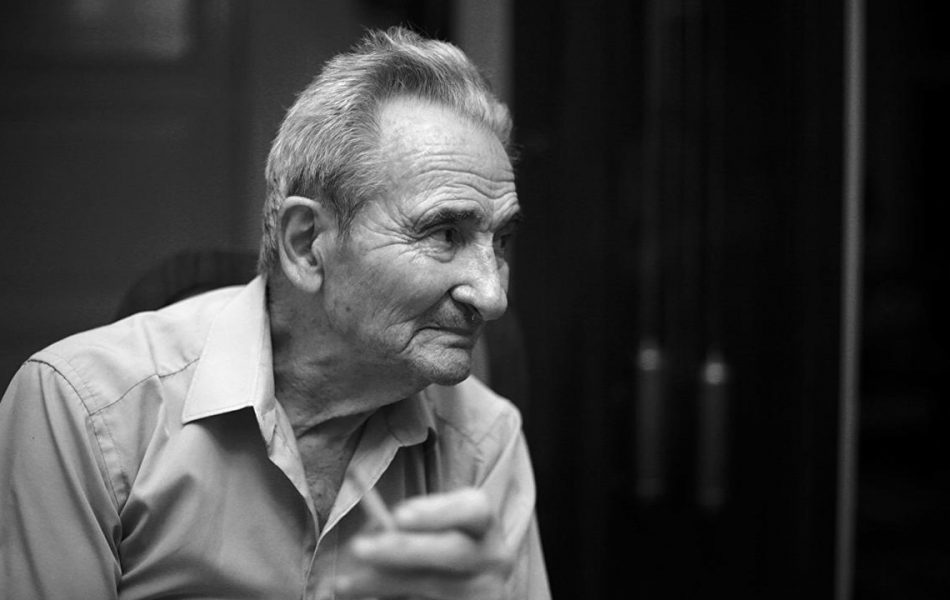Film Recommendation: Licu, a Romanian Story

Licu, a Romanian Story, 2017.
Blurring the borders between the personal and the collective, Ana Dumitrescu’s 2017 documentary film, Licu, a Romanian Story, delivers an intimate portrait of a 92-year-old man, whose life and insights reflect on the last century of Romania. Beyond positing the ageing mind and body as the imprint of national history and social transformation, the film explicitly addresses the challenges of ageing, from issues concerning living arrangements and financial stability to the threat of lonesomeness – each of them explored in an effortless fashion, catalysed by Licu’s confessions. Despite its heavy topics, Dumitrescu’s documentary builds a playful and life-affirming tone, also propagating active ageing, which hence may enrich the years of retirement.
The titular character, Licu, was born under the rule of Carol II, during the interbellum period when Romania was still a constitutional monarchy. For the majority of his adult life, he lived under communism, spending merely his pensioner years in the new, democratic system. Having experienced all these different forms of the country, Licu obtained a compelling clairvoyance, which allows him not only to reminisce about historical events but to comment on them from a critical standpoint. Although his youth belongs to the socialist era, he is not affected by communist nostalgia, on the contrary, he condemns the controlling nature of the regime. In addition, he does not have any illusions regarding post-regime change either, highlighting the soft spots of the current political system.
Since Licu, a Romanian Story palpably relies on the memories of its subject, it is worth considering how Dumitrescu – simultaneously acting as a director, cinematographer and editor – establishes the audiovisual landscape of the documentary to create a sense of permeability between past and present. What becomes apparent early on is that the black-and-white cinematography aims to reach a homogeneous effect, one that stays in unison with the photo archive presented by Licu. The monochrome tone suggests a sort of timeless quality, an impression that is further carried on to the cutaway images. These shots either develop a relation to Licu’s account or serve as brief intermezzos that detail the home environment of the character. The first case can be particularly touching, for instance, when Licu speaks about the loneliness of old age and the losses he witnessed as time passed by, Dumitrescu shows the pendulum clock – the sound of which he adores by the way. Moving on to the soundscape of the film, Licu’s stories are occasionally supplemented with non-diegetic sounds that bring events into the present (e.g. the sound of rain or that of shooting). Besides, the usage of music is also notable, enhancing the bittersweet mood of the documentary. Moreover, the opening song titled East-West Boogie – a vivacious Americana song about the Berlin Wall – gains special importance, as it already points to the encounter of the everyday man with Eastern European history.
Considering how the documentary addresses old age what stands out the most is the film’s bilateral approach to ageing itself. On the one hand, the narrative thematises negative developments, which generally concern the elderly: the death of the spouse, loneliness and the difficulty of conducting a healthy social life among others. However, on the other hand, Licu’s impressive age offers a hopeful take on the possibilities of active ageing, a concept which argues that the well-being of the elderly relies heavily on their ability to stay active in every regard. And Licu, a Romanian Story – simply by documenting its subject’s everyday life – propagates this concept convincingly. Thus, it is suggested that Licu’s great physical and mental condition is also maintainable due to his passions that keep him occupied and always planning. He likes cooking, sewing, wood carving and enlarging old photographs, which not only make him content but also help him to preserve his independence. Having in mind that these activities are not particularly costly, the documentary implies that active ageing can be affordable and it does not have to be only the privilege of the well-endowed.
Whether we contextualize it as a portrait of an elderly man or that of a nation, Licu, a Romanian Story does a great job at its double duty. It is one of those documentaries, which relies on a captivating subject, who has much intellect and sensitivity, yet in the end, we are reassured that it owes a lot to the director’s warm and creative presence, as well. Continuing this thread of thought, Dumitrescu’s decision to dedicate a film to Licu’s life and thus to become a part of his daily routines might also be considered a therapeutic act, which leads to active ageing. Ultimately, the shooting enables Licu to build up a new relationship and to actively reflect on everything he has been through. Indeed, what a journey it has been and continues to be, as Licu tells his friend on the phone: “I have to live 100 years old! The contract is made for 100!”
Written by: Boglárka Angéla Farkas
Image credit: Licu, a Romanian Story (Licu, o poveste românească), directed by Ana Dumitrescu, produced by Jules et Films, 2017.
Related films:
All the videos on this page are not hosted on the AGE-C Portal server but are only inserted as links.
All copyrighted materials included on this website are used for educational purposes in accordance with fair use guidelines.